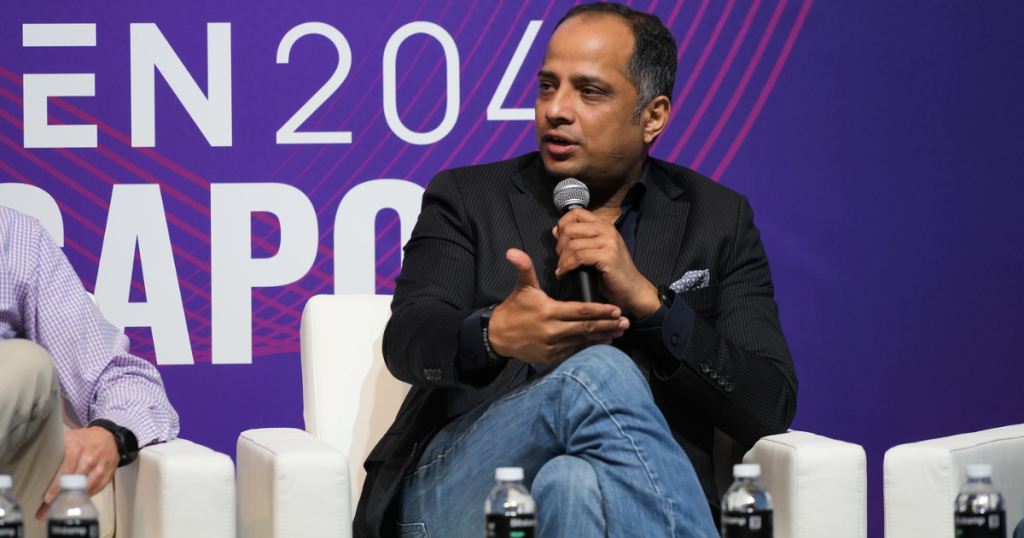Ironic as it may sound, black swan events have become a regular occurrence in the crypto space this year. Most recently, the collapse of FTX — which, at its peak, was the third-largest crypto exchange by volume — has shaken up the markets.
As its mismanagement of funds came to light, FTX was forced into bankruptcy overnight. Its US$32 billion valuation was wiped out, causing a ripple effect which continues to unravel in front of us.
Temasek and Sequoia Capital are two companies to have suffered a significant loss as they were forced to write off hundreds of millions which they invested in FTX. There are also over a million consumers with funds frozen on the platform, and it remains unclear whether or not they’ll be able to recoup these losses.
From a regulatory perspective, the red flags keep emerging. Since the start of 2022, the Monetary Authority of Singapore (MAS) has been looking into controlling retail access to cryptocurrency.
This started with policies which disallowed exchanges from advertising to the general public. In a recently published consultation, the MAS also considered measures such as enforcing disclosures and consumer suitability tests.
Restricting retail access to crypto
The MAS has long maintained its stance that cryptocurrency is an unsuitable investment for retail consumers. This year, investors have lost billions of dollars to scams, hacks, and poorly managed companies. Crypto winter aside, even in the best of times, the markets have proven to be too volatile for safe investments.
“When the market goes the wrong way, I get so many emails to take action against [the wrongdoings of companies],” says MAS’ Chief Fintech Officer, Sopnendu Mohanty, at Token2049.
It’s a difficult place to be for regulators. During the bull market, they faced criticism for raising barriers. Yet now, they’re facing criticism for not raising them high enough.
“I think consumer awareness is a big challenge,” Mohanty continues. “We have to repeatedly tell people that this asset class is not suitable for retail investors because they just don’t understand.”
All these signs seem to point towards a ban on retail access cryptocurrency. However, that’s unlikely to happen for two reasons.
First off, enforcing a ban would be more trouble than it’s worth. The MAS could prevent crypto exchanges from operating in Singapore, but there’s not much that can be done about DeFi protocols and P2P transfers. Consumers who wish to obtain crypto would still be able to do so.

We are not outrightly banning cryptocurrency because we need a new form of money to transact in Web3. That is a requirement and we must provide for that.
– Sopnendu Mohanty, Chief FinTech Officer, MAS
Next and more importantly, this would hinder innovation in blockchain technology — something Singapore has readily been in support of over the years. Consumer adoption plays a key role in allowing companies to build and experiment.
Striking a balance
As the MAS looks to protect both consumers and innovators, its regulations must take on a balanced approach. With bans out of the question, the compromise is adding friction to the crypto onboarding process.
“We have put a lot of restrictions around advertisements and the process through which crypto can be accessed,” explains Mohanty. “I think, [in time], people will feel more and more friction in accessing this asset class.”
At Token2049, Mohanty criticises some of the banners put up by crypto companies. One of them reads, ‘the future belongs to the fearless’.
“Consumers look at that tagline and it’s a serious issue for us. We have to ensure there’s a certain discipline, so consumers aren’t misled into thinking that they have to invest fearlessly.”

Mohanty maintains that most retail investors — even those who’ve bothered to attend this crypto conference — don’t understand the cryptocurrencies which they trade. “Bitcoin was created to solve the [problem of] cross border payments. I can bet that if you go down this room, very few people understand [this].”
The MAS might not be able to prevent crypto trading, but it’s doing its part to curb speculation. “If the future is Web3 and tokenisation, so be it. However, we have to ensure that the people who participate in the market understand [the real assets behind these tokens].”
Building a safer crypto space
As it stands, there’s a lack of reliability in the crypto space. Even professional traders have struggled to navigate the market in recent times. “There [are no] sophisticated customers when it comes to this space,” Mohanty argues. “Nobody really gets it.”
People are simply speculating on future value. Whether it’s a normal retail customer or a highly specialised trader, I don’t think segmentation has really taken place in this market. Even the best players don’t understand this market well.
– Sopnendu Mohanty, Chief FinTech Officer, MAS

This has become more apparent as prominent figures such as Do Kwon — co-founder of Terraform Labs — and Sam Bankman-Fried — CEO of FTX — have come under fire for their irresponsible practices while managing their crypto companies.
Reliability and trust needs to be brought about, not only by regulators but the industry itself. “If industry participants don’t take their own responsibility to fix this, you will see more regulators stepping in and restricting consumer access to this asset class,” says Mohanty.
He elaborates on the need for the crypto ecosystem to evolve and build risk management capabilities. Secure exchanges, custody services, and analytics platforms all have a key role to play in helping crypto mature.
Featured Image Credit: Token2049










